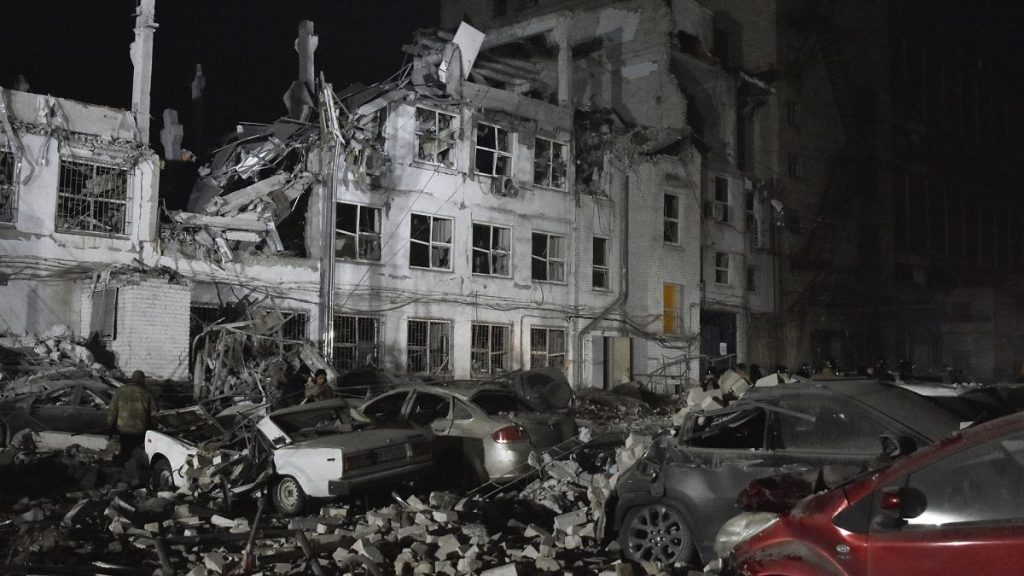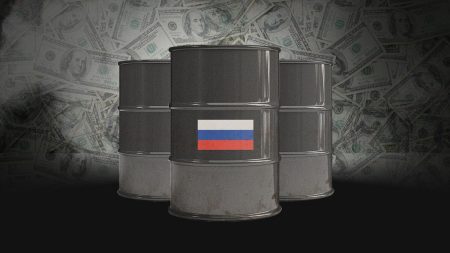The recent Russian missile strike on a private medical clinic in Zaporizhzhia, southern Ukraine, serves as a grim reminder of the ongoing conflict’s devastating impact on civilian populations. The attack, which claimed the lives of six individuals and injured 22 others, including two women who were miraculously rescued after being trapped under rubble for over seven hours, underscores the relentless nature of the war and the vulnerability of non-military targets. The incident has sparked renewed calls from Ukrainian President Volodymyr Zelenskyy for increased military aid, particularly air defense systems, from Western allies. Zelenskyy emphasized the desperate need for these systems to protect Ukrainian civilians from further missile attacks, urging allies to deploy existing weaponry rather than letting it remain unused in storage. This attack exemplifies the tragic human cost of the war and highlights the critical need for enhanced defensive capabilities to mitigate future tragedies.
The attack on the Zaporizhzhia medical clinic is but one instance in a pattern of deadly strikes targeting civilian areas throughout the nearly three-year conflict. These attacks, a recurring feature of the war, not only inflict immense human suffering but also represent a violation of international humanitarian law. The targeting of medical facilities, in particular, is particularly egregious as it deprives civilians of essential healthcare services and jeopardizes the lives of both patients and medical personnel. The repeated nature of these attacks underscores the urgent need for international action to hold those responsible accountable and to implement measures to protect civilian populations from further harm. The international community must work together to ensure the safety and well-being of civilians caught in the crossfire of this ongoing conflict.
President Zelenskyy’s plea for enhanced air defense systems reflects Ukraine’s persistent efforts to bolster its defenses against Russian aggression. He has consistently stressed the inadequacy of Ukraine’s current air defense capabilities in the face of the sustained Russian missile barrage. Zelenskyy’s appeal to Western allies underscores the critical role of international military aid in bolstering Ukraine’s defensive capabilities and mitigating the impact of Russian attacks. The provision of advanced air defense systems is seen as crucial for protecting civilians, critical infrastructure, and military assets from further destruction. Zelenskyy’s emphasis on the urgency of this need highlights the severity of the threat posed by Russian missile attacks and the importance of timely international support.
In response to the ongoing Russian aggression, Ukraine has also taken offensive measures, launching long-range strikes on Russian-held territories. Recent reports indicate a Ukrainian drone attack on an industrial facility in Russia’s Bryansk region, where Russian authorities claim to have intercepted 14 drones. Additionally, a Ukrainian missile strike reportedly damaged an industrial plant in Taganrog, located in Russia’s Rostov region. These actions demonstrate Ukraine’s resolve to counter Russian attacks and disrupt Russian military operations within occupied territories. The increasing frequency of these cross-border strikes signals a potential escalation of the conflict and raises concerns about the potential for further retaliatory actions from Russia.
Beyond immediate military aid, Zelenskyy has also expressed his openness to considering the deployment of Western troops within Ukraine as a means of enhancing security and advancing towards a peaceful resolution of the conflict. This proposition, while potentially controversial, reflects the Ukrainian government’s willingness to explore various options to bolster its defense posture and deter further Russian aggression. Zelenskyy has linked this proposal to Ukraine’s aspirations for NATO membership, emphasizing the need for a clear timeline for both EU and NATO accession. This suggestion underscores the complex interplay of military, political, and diplomatic considerations surrounding the conflict and highlights the ongoing debate about the role of international forces in resolving the crisis.
Zelenskyy’s conditional acceptance of Western troop deployments underscores the delicate balance between seeking international support and preserving national sovereignty. While welcoming the potential security benefits of such a deployment, he has stressed the importance of maintaining Ukrainian agency in the process. His insistence on a clear timeline for EU and NATO membership reflects Ukraine’s desire for integration with Western institutions and a firmer commitment from its allies. This delicate balancing act reflects the difficult choices facing Ukraine as it navigates the challenges of the ongoing conflict while simultaneously pursuing its long-term strategic goals. The willingness to consider foreign troop deployment highlights the gravity of the situation and the Ukrainian government’s commitment to exploring all available avenues to secure peace and stability for its citizens.










